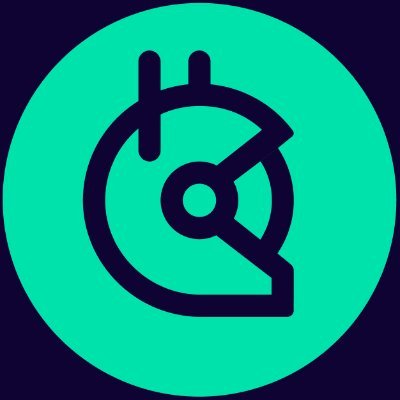What projects are worth paying attention to after the Web3 Grants 2023 donation round?
Original Title: "What Interesting Projects Did We Discover After Reviewing the Web3 Grants 2023 Donation Rounds?"
Original Source: Pure Truth, ChainFeeds
Web3 Grants can be understood as protocols allocating a portion of their revenue or native tokens to incentivize protocols, projects, or research that benefit the entire Web3 ecosystem or a specific ecosystem. For projects, grants not only provide financial support but also signify endorsement and diversified backing; for large protocols, grants help retain developers, thereby promoting the development of the entire ecosystem.
This article selects the four most representative grants: the Ethereum Foundation Ecosystem Support Program (ESP), Gitcoin Grants, Optimism RPGF, and Uniswap Foundation Grants, attempting to find "hidden gems" among the projects and research funded in 2023.

Ethereum Foundation Ecosystem Support Program (ESP)
The Ethereum Foundation Ecosystem Support Program (ESP) is a branch of the Ethereum Foundation focused on providing financial and non-financial support to teams across the entire Ethereum ecosystem.
In April 2015, the Ethereum Foundation launched DEVgrants, aimed at providing value for key components of Ethereum's core software, its development processes, or critical parts of the ecosystem (public services, APIs, ABIs) (Note: Public information shows that DEVgrants only announced the first batch of funded projects, with no further updates); in March 2018, the Ethereum Foundation launched Ethereum Foundation Grants to expand support for projects excelling in scalability, usability, and security; in November 2019, the Ethereum Foundation launched a new Ecosystem Support Program (ESP), shifting from a focus on developer ecosystems with DEVgrants to general support for building tools, infrastructure, research, and public goods with an emphasis on scalability.

ESP 2023 Funding Rounds:
First Quarter: 63 projects, $12,910,616.53
Second Quarter: 56 projects, $9,218,158.34
Third Quarter: 98 projects, $8,945,982.74
Fourth Quarter: Not yet disclosed
Spotlight: Projects Funded More Than Twice
In terms of the number of funded projects, "Community & Education" projects are the most numerous category, which aligns with Ethereum's overall mature technology and focus on ecosystem development. The second most funded category is "Cryptography & Zero-Knowledge Proofs," with several long-term ESP-funded projects and research.
The following are projects and individuals that received at least two grants from ESP in 2023:

Gitcoin Grants
Gitcoin was founded in 2017 with the initial goal of supporting the development of open-source projects and monetizing open-source software through bounty programs. In 2018, one of Gitcoin's founders, Vitalik, published a paper on Quadratic Funding, which states that the more donors there are, the more donations a project receives from the funding pool. Gitcoin launched Gitcoin Grants in 2019, becoming the first project to implement quadratic funding. From 2019 to 2022, Gitcoin Grants raised $700,000, $2.8 million, $13.2 million, and $21.4 million for public goods, respectively.

Gitcoin Program Alpha Round and Gitcoin Program Beta Round are two testing rounds for Gitcoin's decentralized and customizable donation solution, the Allo protocol, built on the Gitcoin Grants Stack. Gitcoin Grant 18 and Gitcoin Grant 19 are regular funding rounds for 2023, with some rounds conducted in the Public Goods Network. Gitcoin Grants primarily focus on Web3 open-source software, Ethereum infrastructure, climate solutions, and Web3 community and education.
Gitcoin 2023 Funding Rounds:
Gitcoin Grant 19: 471 projects, $1.09 million
Gitcoin Grant 18: 480 projects, $1.68 million
Gitcoin Program Beta Round: 468 projects, $1.857 million
Gitcoin Program Alpha Round: 150 projects, $1.667 million
Spotlight: Public Goods Network
The Public Goods Network (PGN), led by Gitcoin, aims to create sustainable and recurring funding for public goods. PGN is built on Optimism's OP Stack and plans to allocate the vast majority of sequencer fees to public goods projects. This means PGN does not need to rely on external donations but instead is self-sustaining through endogenous fees from user interactions within the network.

Notably, PGN plans to enable Contract Shared Revenue (CSR) in the future to meet developers' needs for sustainable income sources. The CSR protocol EIP-6969, proposed by Slingshot CTO zkCole, aims to incorporate economic incentives for developers at the protocol level. EIP-6969 proposes a new gas fee distribution mechanism for EVM-based L2s, allowing a portion of gas fees to be rewarded to contract developers. Once EIP-6969 is incorporated into Ethereum upgrades, PGN could achieve significant growth due to economies of scale.
The PNG mainnet launched in July 2023, and L2BEAT data shows that the current TVL of the PNG network is $1.57 million, with a total of 4,200 addresses, still in a very early stage of development. According to PGN's official plan, after six months of mainnet operation, fees will be evaluated and allocated based on accumulated data. We look forward to more data and disclosure of allocation rules.
Optimism RPGF
Retroactive Public Goods Funding (RetroPGF or RPGF) is a funding program that encourages projects related to Optimism. RPGF creates a startup-like funding cycle for public goods projects through revenue generated by the protocol (profits from sequencers), retroactive public goods funding, and results oracles. The core of RPGF is Vitalik's retrospective viewpoint, which states that it is easier to reach consensus on what has already been useful rather than what will be useful.

RPGF 2023 Funding Rounds:
RetroPGF Round 2 (First Quarter): 195 projects, 10 million OP tokens
RetroPGF Round 3 (Third Quarter): 501 projects, 30 million OP tokens
Spotlight: Protocol Guild
As the recipient of the most donations (over 1.22 million OP in total) in RetroPGF2 and RetroPGF3, Protocol Guild began in 2022. Protocol Guild is a collective of Ethereum contributors dedicated to enhancing incentives for managing core protocols. Protocol Guild allows ecosystem sponsors to directly fund members, supporting their work and public interests by maintaining an on-chain registry of its members.
The initial intention of Protocol Guild was to pilot a new donation mechanism to gather all protocol contributors into a single funding mechanism and keep it continuously updated. Specifically, large donations to Protocol Guild will be released to members within a year, while small/regular donations can be withdrawn by members at any time. The weight of each member's withdrawals is calculated based on their contribution time to the ecosystem.
As of the 15th of 2024, Protocol Guild has 161 members and has received over $20.77 million in donations. Protocol Guild originally planned a year-long pilot from May 2022 to May 2023, and the official website has seen little update since a mid-term update in December 2022.

It is undeniable that Protocol Guild provides an attempt at on-chain incentive distribution (mainly at the contract level) without addressing a fundamental question: how to assess the value of contributions? Protocol Guild uses a simple time factor, but in reality, there is not much difference among members, resembling a "dividing the pie" approach. This also poses challenges for subsequent evaluations: did economic incentives truly promote member contributions? Finally, Protocol Guild members are currently limited to Ethereum developer organizations and leading ecosystem projects, raising questions about whether it can expand to include more individuals, such as independent developers, in the future.
Uniswap Foundation Grants
The Uniswap Grants Program (UGP) was launched in December 2020 after a governance vote, allocating $1.5 million in UNI and lasting for six months. The initial priorities of UGP were narrow, focusing only on MVP, aimed at providing seed support for the developer ecosystem, later evolving to support governance research, community building, education, and core protocol work. Influenced by the crypto market bull run, UGP lasted for 18 months, distributing a total of $7 million in grants. In August 2022, the Uniswap Foundation (UF) was established, evolving UGP into Uniswap Foundation Grants (UFG), with a budget expanded to $60 million over three years.

Uniswap Foundation Grants, as a typical ecosystem fund, are primarily established around the development of the Uniswap ecosystem. Uniswap Foundation Grants Wave 3 focuses on the following four categories: 1. Protocol Growth, including donations to enhance the Uniswap v3 SDK and LP toolkit; 2. Research and Development, including studies on non-checkpoint TWAP oracles and cross-chain MEV market structure dynamics; 3. Community Development, including support for analyses around public goods within the industry and co-hosting live events with FWB; 4. Governance Management, including research on new governance structures and assessments of governance information bridges.
Uniswap Foundation Grants Rounds:
Uniswap Foundation Grants Wave 3 (June 2023): 21 projects, $990,000
Spotlight: Three Projects of Interest from the Uniswap Foundation
The Uniswap Foundation has particularly highlighted three funded projects: the "Non-Checkpoint" TWAP oracle, Uniswap v3 SDK Rewrite, and LP University: Uniswap v3 Beginner to Intermediate Course.
Axiom's research and prototype production on the "Non-Checkpoint" Uniswap v2 and v3 TWAP oracles: Research and development of this form of oracle could reduce the risks of oracle operations and increase the use of trustless on-chain oracles in DeFi applications that rely on oracles. The proof of concept eliminates the need for checkpoints in v2 TWAP and the caching overhead of v3 oracles. The Axiom team has extensive expertise in zero-knowledge systems and blockchain infrastructure.
The Uniswap v3 SDK Rewrite by Koray and Florian: This will support updates and improvements to the Uniswap v3 SDK, including updates to the JavaScript SDK documentation, updates to existing v3 SDK code to make the architecture more modern and efficient, and the addition of new test suites. The team has rich technical experience, including creating web3.swift (one of the most widely used crypto development tools on iOS) and revitalizing web3.js.
LP University created by DoDao: This will become an excellent resource for those who want to learn about LP but do not know where to start. This grant will be used to provide an interactive educational experience from beginner to intermediate for potential new liquidity providers. The course will cover AMM introduction, Uniswap v3 fundamentals, active and passive LP strategies, and more. The DoDao team has extensive experience in creating educational content for the crypto ecosystem.
What’s Next?
This article reviewed the donation situations and noteworthy projects of mainstream foundations in 2023. In the new year, we will continue to pay attention to and participate in research and discussions related to major foundations and public goods, including but not limited to:
- Definition of public goods: Debates regarding the attributes of public goods for funded projects, such as discussions on whether financially stable companies like Alchemy should be included in RPGF funding;
- Transparency: Including the transparency of the entire donation process, disclosure of foundation financial situations, and the use of funds by funded projects;
- Incentive assessment: How to properly incentivize projects of different scales/types, and how to evaluate the results of incentives;
- New research: Dynamic research on the topic of public goods.











